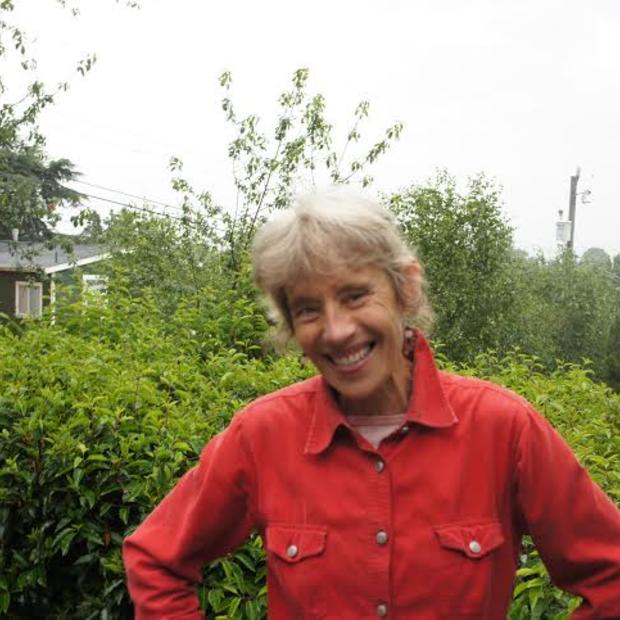It's hard to believe a crackling fire and romantic hearth are a major source of carbon pollution in the Puget Sound, but fine particulates released by old non-certified wood burning stoves and fireplaces are the Puget Sound Clean Air Agency's biggest worry.
“It's about one-thirtieth the size of a human hair and those particles can travel deeply into your lungs and even into your bloodstream," says the agency's Craig Kenworthy.
The EPA has found that these particles are likely to cause breathing and respiratory problems, and do cause heart attacks, strokes and early death. The chemical cousins they're bound to, polycyclic aromatic hydrocarbons (PAHs), have been linked to cancer, weakened immune systems and reproductive problems.
Particulate hot spots include Darrington and Marysville in Snohomish County as well as the Puyallup River Valley. Because of their sheer number of non-certified stoves, Tacoma and parts of urbanized Pierce County are the worst. Kenworthy likens the numbers to having several hundred thousand old cars driving around before catalytic converters were required to meet clean air standards.
The old cars have largely been phased out. Non-certified stoves have not.
Air quality in most of Tacoma and parts of Pierce County is in violation of the Clean Air Act. Originally, Puget Sound's Clean Air Agency had until the end of this year to show the EPA it could reduce the pollution and bring the area into compliance. Because they've made progress — converting 2,000 of the estimated 24,000 wood stoves that don't meet air standards — the deadline has been extended.
Still, they'll need to convince anywhere from 5,000 to 6,000 more residential homeowners to convert their old stoves or find new heating options by 2015 in order to comply with the EPA mandate.
The reasons people heat their homes by burning wood vary. Number one is cost: Heating with wood, which is often accessible from palettes and downed trees, is far cheaper than heating with electric. In addition, many homes in Tacoma and Pierce County are old and were set up with wood stoves. Often there are no gas lines.
To convince people to convert or change-out their old stoves, the Puget Sound Clean Air Agency came up with a slogan: “Leave your old flame behind."
“What we mean by that is get rid of an old uncertified wood burning stove or fireplace," says Amy Warren, the agency's Wood Smoke Reduction Program Manager. “And upgrade it to a cleaner source of heat or just scrap it and be done with it altogether.”
The agency offers discounts to recycle old wood stoves, buy-back rewards and free heating replacements for those who qualify.
Nancy Ericksen and her husband, long time residents of Tacoma, recently made the switch. Clean air agency incentives made it an especially attractive option. Particularly after her husband's back surgery, which put a stop to chopping wood.
“It was really hard to give up the wood stove. I love wood heat, but when the money incentives came around we decided let's take a look at this,” she says.
They received a $1500 coupon for the purchase of a new gas stove, the total cost of which was about $3100. They also had to spend $350 out of pocket for the gas company to supply a gas line to their house from the street. But they'll go from spewing out some 244 annual pounds of carbon pollution to 1/6 of a pound annually with the gas stove.
Another convert, retiree John Hopkins, used to burn wood every day to keep electrical costs down. When he learned that he qualified for an entirely new source of heat at no cost he switched to an electric heat pump.
“On my income, to be able to replace something that was worn out, take the wood stove and particulates out of the picture and end up with a more efficient operating system was pretty much a no-brainer,” he says.
Mike Duval is the owner and president of Sutter Home and Hearth. He has served on the board of the clean air agency and is a proponent of EPA certified wood and pellet stoves, which pollute at far lower rates than uncertified stoves. He says that even with older stoves and fireplaces, there are things people can do to reduce emissions. Number one, burn dry wood and a hot fire rather than burning at a very low rate with smoldering wood and inefficient combustion.
“That's what creates the worst amount of smoke and particulate and subsequently PAH's, because all those things are going into the atmosphere and not being consumed by the fire,” says Duval.
Whether the Puget Sound Clean Air Agency will be able to entice more people to “leave their old flame behind” remains to be seen. As it is, air quality violations in pockets of Pierce County make the region as a whole less competitive to business, says the agency's Kenworthy.
In an odd twist, they could result in restrictions on federal highway funding. When the Clean Air Act was enacted, highway funds were attached to compliance. While not the agency's biggest concern, vehicle emissions, idling and diesel pollution continue to plague the Sound — both in terms of human health and the environment.



